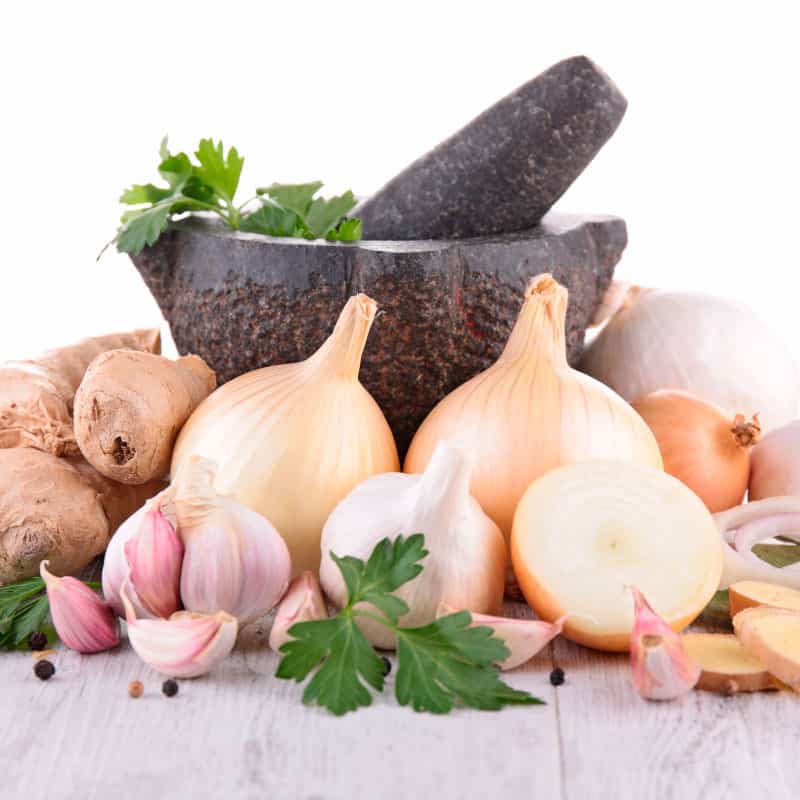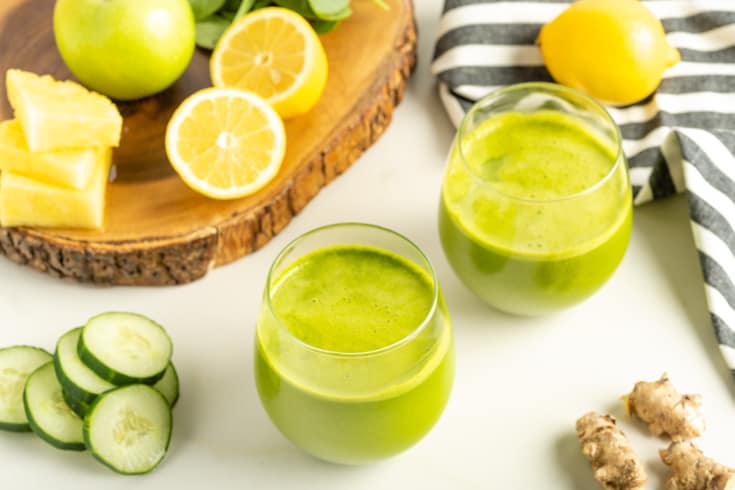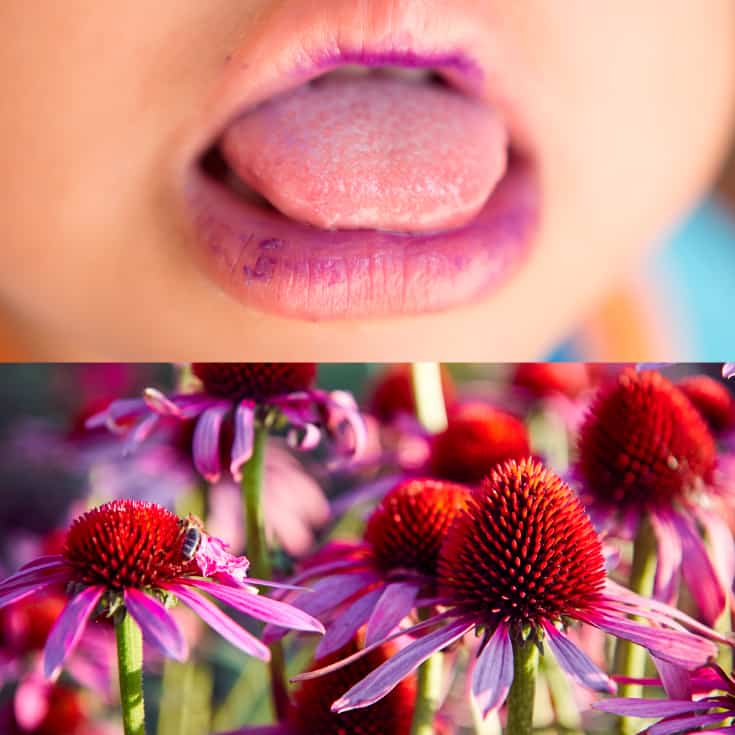This Dr. Axe content is medically reviewed or fact checked to ensure factually accurate information.
With strict editorial sourcing guidelines, we only link to academic research institutions, reputable media sites and, when research is available, medically peer-reviewed studies. Note that the numbers in parentheses (1, 2, etc.) are clickable links to these studies.
The information in our articles is NOT intended to replace a one-on-one relationship with a qualified health care professional and is not intended as medical advice.
This article is based on scientific evidence, written by experts and fact checked by our trained editorial staff. Note that the numbers in parentheses (1, 2, etc.) are clickable links to medically peer-reviewed studies.
Our team includes licensed nutritionists and dietitians, certified health education specialists, as well as certified strength and conditioning specialists, personal trainers and corrective exercise specialists. Our team aims to be not only thorough with its research, but also objective and unbiased.
The information in our articles is NOT intended to replace a one-on-one relationship with a qualified health care professional and is not intended as medical advice.
Giardiasis: How to Prevent This Parasite Infection + 4 Natural Treatments
June 6, 2017
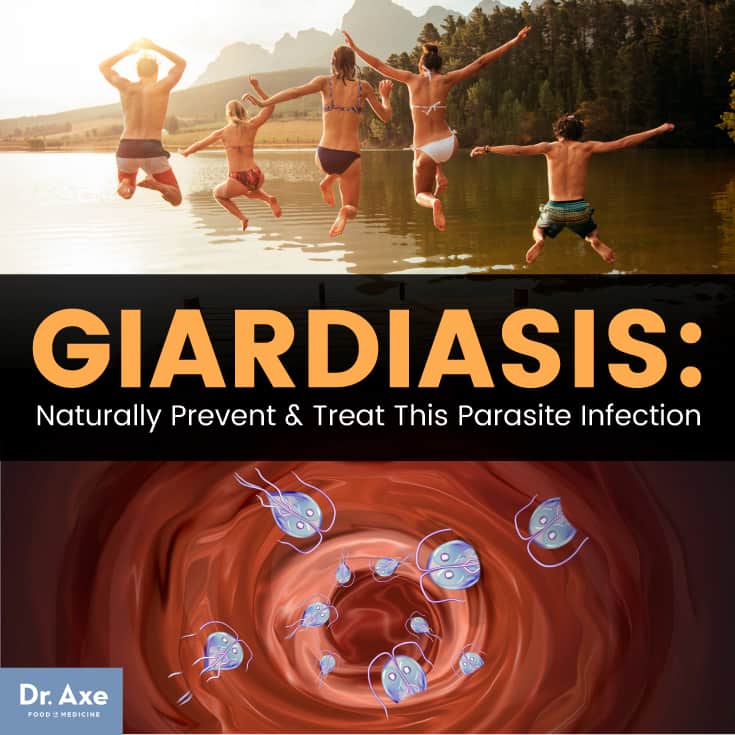
Are you and your family planning to spend time swimming at a lake this summer? Be sure you know how to protect yourself and your loved ones from a giardia infection — and that you can spot the symptoms. According to the staff at Mayo Clinic, giardia infection (also called giardiasis) is “one of the most common causes of waterborne disease in the United States.” (1)What are some signs that you may be suffering from a giardiasis infection? Several of the most common signs include diarrhea, stomach pains or cramps, nausea, bloating and loss of appetite. Sometimes the infection will resolve on its own without the need for medication or other treatments. But in those with weakened immune systems, or in children, the elderly or pregnant women, it’s not a good idea to wait and find out. Prevention tips and natural treatments that can help protect you from giardiasis complications include practicing good hygiene, boosting the strength of your immune system, or seeing a doctor for antibiotic treatments when needed.
What Is Giardiasis?
Giardiasis is a condition caused by a parasitic intestinal infection, which results in uncomfortable symptoms that affect the digestive system. The microscopic parasite Giardia lamblia causes the infection. A parasite is an organism that lives on or in a host. It survives by getting its energy from the host. This includes absorbing some of the nutrients present in the host’s intestines. You can treat many cases of giardiasis with natural remedies and/or medications. However, prevention is still the very best line of defense.
Where and when is a giardia infection most likely to develop? People of all ages and ethnicities can develop parasitic infections because Giardia lamblia exists all over the world. You’re at the greatest risk for suffering from parasitic infections, including giardiasis, but also other similar types, when:
- visiting or living in any areas with poor sanitation
- drinking or swimming in contaminated and/or unsafe water (especially lakes or streams)
- eating certain foods that carry parasites and other harmful microbes
In many cases when someone acquires a giardia infection it will clear up on its own, typically within several weeks as the digestive system and immune systems remove the parasite from the body. However, in severe cases the body may not be able to control the infection. Therefore, complications or even long-term damage to the intestines can develop. It’s also possible to experience ongoing digestive symptoms even after the parasites are cleared from the body.
What Is Beaver Fever?
Another name for giardiasis is “beaver fever,” which is the same type of parasitic disease caused by Giardia lamblia. (2) Giardiasis earned this nickname because the beaver is believed to be a potential source of Giardia that contaminates lakes, reservoirs and streams. However, the beaver is not the only animal that can pass on the parasite to others. Authorities believe that human fecal waste (stool, or poop) often spreads the parasite in a number of different ways, as do other domestic and wild animals.
Signs & Symptoms of Giardiasis
A high percentage of people with giardiasis never experience any noticeable symptoms. Because of this, many remain unaware that they even have the parasite in their system. For those who do deal with digestive discomfort or other giardiasis symptoms, they usually appear one to three weeks after exposure to the parasite. The most common signs and symptoms of a giardia infection include:
- Loose or watery diarrhea
- Sometimes stools that appear “greasy” or discolored
- Cramps, pain in the abdomen, and stomach bloating
- Gassiness, belching or passing lots of gas
- Loss of appetite, nausea or other symptoms of an upset stomach
- Exhaustion/fatigue
- Sometimes other symptoms due to dehydration and electrolyte imbalance
One of the most obvious signs of giardia infection is experiencing watery stools and diarrhea. This is why giardiasis (beaver fever) is called “a condition of the bowels.” Why does giardia cause diarrhea, usually along with other related digestive symptoms like bloating and cramping? The body’s way of defending itself is to try and remove the parasite through feces. Diarrhea can lead to dehydration (loss of water and electrolytes in the body), which can potentially make all symptoms worse, such as dizziness and nausea. It’s possible for some people to experience chronic diarrhea that lasts for more than several weeks. This can contribute to problems like nutrient deficiencies and unhealthy weight loss.
How long will these symptoms last? Most people need about 2–6 weeks to overcome the infection. This is why it can take this long for the immune and digestive systems to remove the parasite from the body and then return to normal. However, as mentioned above, symptoms such as diarrhea can last for longer — in some cases, up to several months.
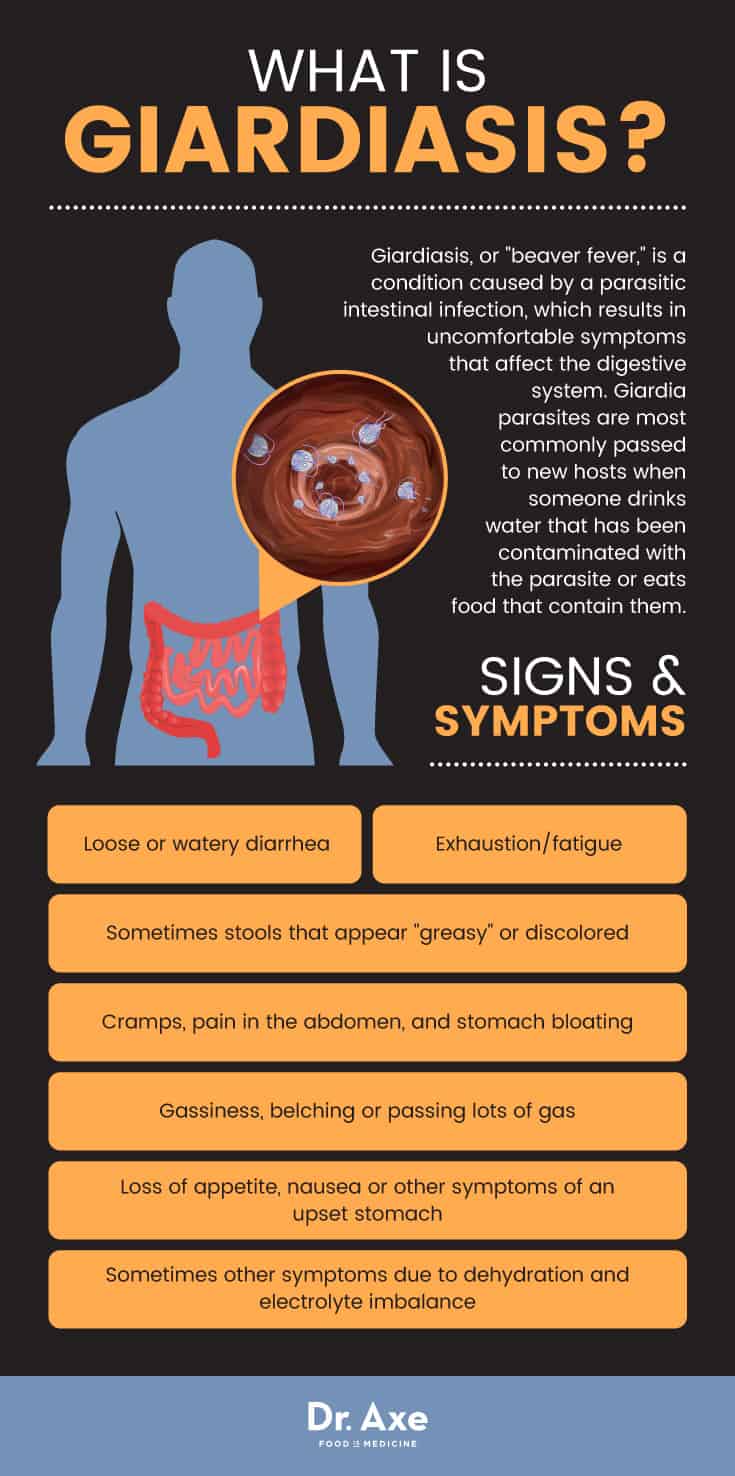
Giardiasis Causes & Risk Factors
How do you get a giardia infection, exactly? This type of microscopic parasite can survive inside both humans and animals by taking up residence in the intestine. Or it can even live outside the intestines for a period of time when a hard coating forms a shell around the parasite. This hard coating (called a cyst) protects the parasite. The parasite’s shell will dissolve when it makes its way into the “host’s” digestive system. Giardia parasites most commonly pass to new hosts when someone drinks water contaminated with the parasite. Or, they can pass on if someone eats foods that contain them.
Research shows that some of the greatest risk factors associated with developing giardia infection include:
- Swimming in contaminated water, especially “backcountry” streams, rivers, ponds and lakes. Parasites may also be found in certain contaminated water supplies, in swimming pools, whirlpool spas, drinking wells, water parks and spas.
- Certain foods and drinking water can also become contaminated due to runoff and other agricultural effects. For example, ground and surface water located near a factory-farm or slaughter-house may be exposed to discharge or animal feces containing parasites.
- Person-to-person contact may transmit giardia infections, in some cases. Or it can be transmitted through stools in areas where people swim. For example, if a child or sick person with diarrhea goes to the bathroom in a public swimming pool. Children, and adults who work with children, have an increased risk. People who work in daycare settings and change diapers may be exposed to contaminated fecal matter. In fact, infections are being transmitted in daycare settings at a growing rate. (3)
- Anal intercourse is another risk factor, as is any other direct contact with stool and fecal matter.
- In some cases produce (fruits and vegetables) may be watered, irrigated or washed with contaminated water. It’s believed that food is a less common source of infection than drinking water; however, it’s still possible. Cooking food helps kill the parasite, which is why consuming raw food is a bigger risk.
- Workers in restaurants, in food manufacturing, or in agricultural settings can also contaminate parts of the food supply. If food handlers infected with giardiasis don’t wash their hands thoroughly to remove the parasite, they can pass it on to foods that someone else then eats.
- People who work with or have wild and domestic animals as pets (such as farmers) are also at an increased risk for this infection because the animals can pass parasites in their stool. Sometimes the owner/farmer then picks up the parasite on their hands. Or it can contaminate the water supply and/or touch nearby food or crops.
Related: Foodborne Illness Symptoms, Causes + How to Treat and Prevent One
4 Natural Treatments for Giardiasis
1. See Your Doctor If You Suspect An Infection (Especially If Pregnant)
In most cases, giardiasis will go away on its own. But if it doesn’t, a medical professional will need to treat it or you can treat it with home remedies. Your doctor can make a diagnosis of giardiasis by testing samples of your stool. It’s not always necessary to see a doctor (many people don’t since they show no symptoms). But if you suspect you or your child might have an infection, then visit your doctor for a proper medical diagnosis. This is especially important if you’re pregnant.
Symptoms caused by parasitic infections can mimic those due to other conditions. So when symptoms are moderate to severe, it’s best to speak with your doctor before attempting to treat the infection in order to rule out other causes. Always take severe cases that last for more than several weeks and interfere with normal eating, drinking and digestive health seriously. They should be treated as quickly as possible with treatments such as antibiotics (when needed).
When needed, several antibiotic medications used to treat giardiasis include: Metronidazole (Flagyl), Tinidazole (Tindamax) and Natazoxanide (Alinia). Potential side effects of these drugs can include nausea, a metallic taste in the mouth, flatulence, yellow eyes and brightly-colored yellow urine. They aren’t suitable for pregnant women and sometimes aren’t given to children. But ultimately your doctor will decide.
2. Prevention
If you are spending time near or in bodies of water such as springs, streams, or lakes (for example while camping or hiking) don’t drink the water unless it is filtered and you’re sure it’s safe to consume. In general don’t drink from any natural body of water unless the water is filtered and/or you boil it for at least 10 minutes at 158 F (70 C) first. Do not make ice from the water. Avoid cooking with this water, and don’t wash fruits and vegetables with it.
Cooking food helps to kill the parasite, so eating raw fruits and vegetables is a bigger risk. It’s best to drink bottled water to be safe whenever you’re unsure about a water supply, especially for children and pregnant women. If you do swim in any potentially contaminated water, try very hard not to swallow water and shower soon afterwards.
If you have an increased risk for intestinal infections because you work with children who are in diapers (such as in a daycare center or camp), then be sure you wash your hands after you handle any fecal matter. The same is essential for anyone who cleans toilets, works with patients in a hospital or healthcare center, or handles stool/fecal matter in any other setting. Workers in restaurants or on farms should also be very careful about washing their hands so as to not transport any harmful microbes or parasites into the food supply.
3. Protecting Those Around You
If you are diagnosed with giardiasis, always wash your hands before eating, shower daily and practice good hygiene in other ways.
- Don’t share food or drinks with others unless you’ve carefully washed your hands beforehand. Don’t work around food that’s being served to others until the infection clears.
- Others around you should carefully wash their hands after using a shared toilet.
- Avoid swimming in public pools, whirlpools, etc. for the time being.
- Always practice safe sex, especially anal or oral sex, by using a condom to protect your partner. It’s safest to avoid sex during an active infection .
- Don’t bring infected children who are in diapers to daycare centers until they are better.
4. Parasite Cleanse With Supplements & Herbs
Some people find that taking certain detoxifying herbs, antiparasitic essential oils and supplements helps cleanse their body of the parasite more easily. These include the following natural plant substances, which have been used safely for many years. You can find them in most health food stores or online:
- Black walnut (take about 250 milligrams 3x daily) — historically used for the treatment of parasites and other intestinal infections. (4)
- Wormwood (200 milligrams taken 3x daily) — known for its anti-parasitic properties. (5)
- Oregano oil (500 milligrams taken 4x daily) — Oregano oil contains natural antibacterial and anti-parasitic substances that have many detoxifying effects. (6)
- Grapefruit seed extract (read directions and take as directed, depending on strength) (7)
- Clove oil (500 milligrams taken 4x daily or 4 cups of tea) — helps to kill parasites and other invading organisms that can cause digestive upset and infection. (8)
- Foods including fresh herbs or spices like ginger and turmeric, anise/fennel, lemon juice, aloe vera, raw honey or Manuka honey, and raw garlic may also help reduce symptoms, including diarrhea or nausea.
Precautions & When to See A Doctor
There are a number of reasons you might develop symptoms such as loose stools, cramps, or bloating and nausea. This doesn’t necessarily mean that you have a parasite; however, if your symptoms persist for more than one to two weeks and are unexplained, see a healthcare provider. This is especially important if you recently traveled out of the country, swallowed water from a lake or stream, or you’ve been around an infected person.
While overcoming an infection or illness, prevent complications due to diarrhea or loss of appetite by drinking enough water to ensure you don’t become dehydrated. If your child is experiencing any of the symptoms described above that might be due to an intestinal infection, see a doctor or visit the ER right away to be safe.
Final Thoughts on Giardiasis
- Giardiasis (also called “beaver fever”) is a parasitic intestinal infection caused by the microbe Giardia lamblia. It causes symptoms like diarrhea, stomach pains, nausea and sometimes dehydration.
- Risk factors for giardiasis are drinking contaminated water; swimming in “backcountry” lakes, rivers or streams; working in day care centers; and exposure to contaminated foods or water due to agricultural run-off and other effects of farming.
- Prevention and natural treatments for giardia infection include practicing good hygiene to prevent passing it onto others, doing a parasitic cleanse use supplements and herbs, and seeing a doctor for antibiotic treatments when needed.






